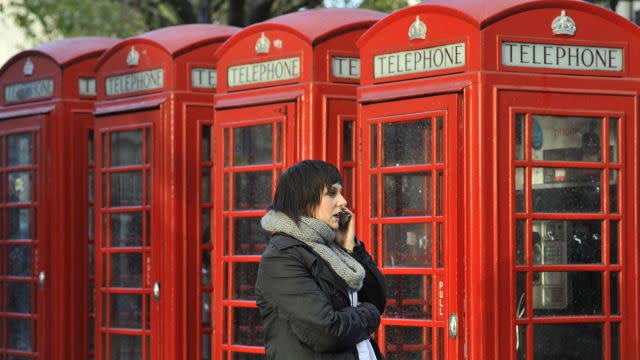You can soon have a (tiny) office in one of Britain’s red phone boxes

Some of Britain’s iconic red phone booths may be filled once again with people making important calls—or printing documents, prepping for meetings, or sending emails.
A New York-based start-up called BarWorks is converting 20 of Britain’s rarely-used pay phone kiosks into tiny shared offices. Users who unlock the booths via a mobile app will find inside a wifi-equipped office with a desk, seat, power sockets, a printer and scanner, and a coffee and tea machine.
They’re intended for no more than an hour’s use at a time, enough for freelancers or workers away from their regular office to quickly prep for a meeting or make phone calls.
“They are like little TARDISes, these things,” said Barworks CEO Jonathan Black, referring to the space-bending time machine in the cult BBC series Doctor Who. “As long as you design them properly, it won’t be a squeeze.”
Britain’s iconic red phone boxes were produced from 1926 to 1985, when British Telecom introduced a modern and much less photogenic model. About 9,000 red boxes remain on the nation’s streets. The ubiquity of cell phones means they’re now used more often as backdrops for Instagram shots than for phone calls.
The first phone box offices—10 in London, and 10 more scattered from Edinburgh to Plymouth—will open for business in late June or early July, Black said. Access is available for £10 ($15) per use or a monthly subscription of £19.99 ($29), which includes use of BarWorks’s other (larger) co-working spaces in New York and San Francisco.
The company won’t strictly enforce the one-hour limit in the phone booths; Black compared it to the courtesy rules on exercise equipment at a gym. But in addition to the stifling dimensions, there’s another reason to keep visits to the mini-offices short: no toilets.

Sign up for the Quartz Daily Brief, our free daily newsletter with the world’s most important and interesting news.
More stories from Quartz:

 Yahoo Finance
Yahoo Finance 